News roundup 1 to 15 June 2025
Asia-Pacific animal health news roundup

Latest activities from FAO’s regional and country teams.
In this news roundup
ANTIMICROBIAL RESISTANCE | ||
| INDIA FAO and the Department of Animal Husbandry, Government of Gujarat, held a state-level advocacy meeting under the EU AMR Tripartite project on 3 June to support implementation of the animal health component of Gujarat’s State Action Plan for Containment of Antimicrobial Resistance. The meeting brought together more than 50 stakeholders from animal health, human health, environment, fisheries and drug regulation sectors. Discussions focused on reducing antimicrobial use, strengthening integrated laboratory networks, enhancing surveillance systems, and promoting capacity building and ethnoveterinary practices as key strategies to combat AMR. | |
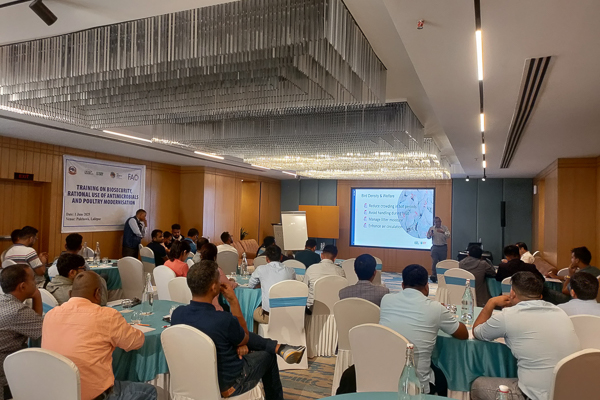 © FAO/Nabin Paudel © FAO/Nabin Paudel | NEPAL On 1 June in Lalitpur, FAO held training of trainers on biosecurity, rational antimicrobial use and poultry modernization. The training, delivered under the Pandemic Fund project in collaboration with the Department of Livestock Services and the U.S. Soybean Export Council, aimed to prepare 29 veterinarians as field-level trainers to strengthen farmer outreach and promote sustainable poultry production. | |
| NEPAL FAO conducted a training session on 3 June in Chitwan for 28 poultry entrepreneurs, focusing on modern poultry practices, farm-level biosecurity and rational antimicrobial use. Organized through the Pandemic Fund project and in collaboration with the Department of Livestock Services and the U.S. Soybean Export Council, the training supports improved animal health and productivity. | |
| Back to top | ||
EPIDEMIOLOGY | ||
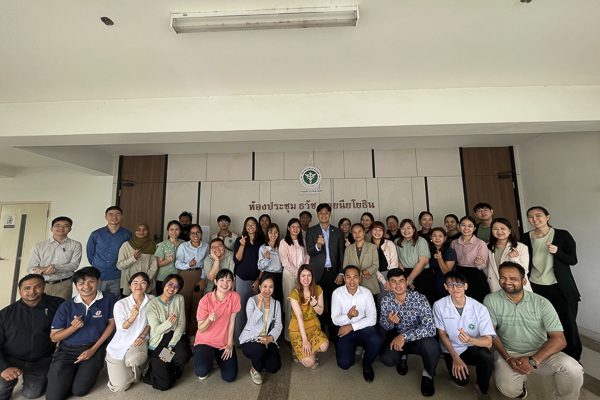 © FAO/Siripatsorn Pongtarakulpanit | ASIA AND THE PACIFIC On 11 June, as part of the introductory course in epidemiology and biostatistics of Regional Field Epidemiology Training program, a dedicated lecture on animal health surveillance was delivered at the Ministry of Public Health in Thailand. The session introduced key concepts and frameworks for detecting, monitoring, and responding to animal health threats, while underscoring the role of surveillance in supporting One Health. Participants explored how to integrate field knowledge with global data-sharing platforms to strengthen disease preparedness and response. The discussion also provided a platform for sharing field experiences and strategies to strengthen surveillance systems worldwide. | |
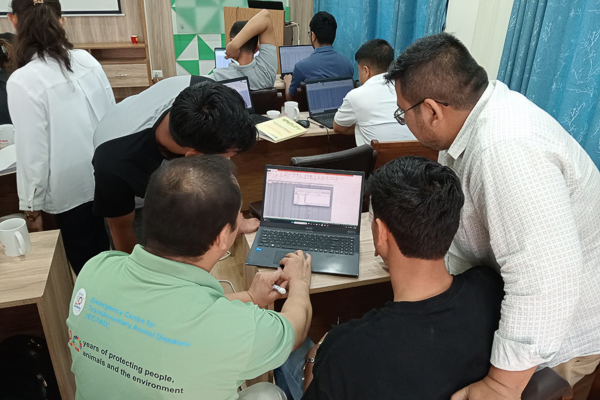 © FAO/Sujan Shrestha | NEPAL FAO, through the Pandemic Fund, conducted module II of the second cohort of the Field Epidemiology Training Program for Veterinarians (FETPV) from 1 to 8 June in Lalitpur. Seventeen participants from various levels of government took part in the training, which focused on animal disease outbreak investigation, and was organized in collaboration with the Department of Livestock Services and the Agriculture Information and Training Center. | |
LABORATORY | ||
| NEPAL To enhance laboratory infrastructure, FAO delivered essential equipment to several national laboratories in early June, with financial support from the Pandemic Fund. Three veterinary laboratories received UV water purification systems, and an ultra-low-temperature freezer was installed at the National Avian Disease Investigation Laboratory in Chitwan. Additional equipment and reagents will be distributed in the coming months. | |
ONE HEALTH | ||
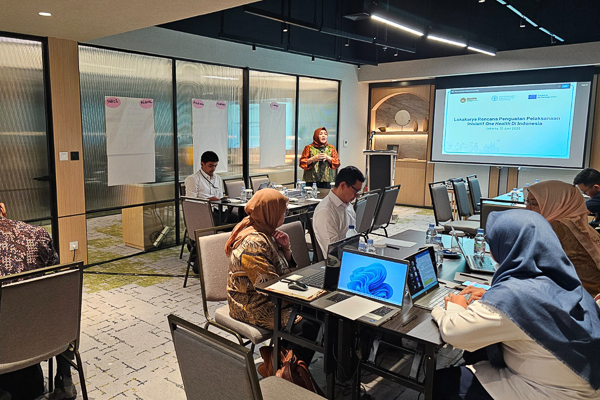 © FAO/Cresensia Rara | INDONESIA On 12 June, FAO, with support from the European Union and in collaboration with the Coordinating Ministry for Human Development and Cultural Affairs, hosted a multisectoral workshop to strengthen the integration and operationalization of the One Health approach in Indonesia. The workshop also served as a strategic platform to advocate for the formalization and enhancement of the legal framework supporting the National Action Plan on Antimicrobial Resistance (NAP AMR) 2025–2029 and the national zoonoses control programme. The workshop concluded with several key recommendations and plans, including the need to draft legal and policy instruments to support One Health implementation across all relevant sectors and a cross-sectoral contribution plan outlining commitments in budgeting, policy development and technical support. | |
| INDIA On 9 June, FAO participated in the first State and Union Territory Engagement Workshop under the National One Health Mission, charting a collaborative path forward for strengthening India’s integrated One Health approach. FAO presented its One Health initiatives across AMR, zoonoses, surveillance, and laboratory strengthening across the country. The engagement reinforced FAO’s commitment to supporting the Government of India in operationalizing the One Health approach through technical assistance, strategic communication, and evidence-based policy support. | |
PARTNERSHIPS | ||
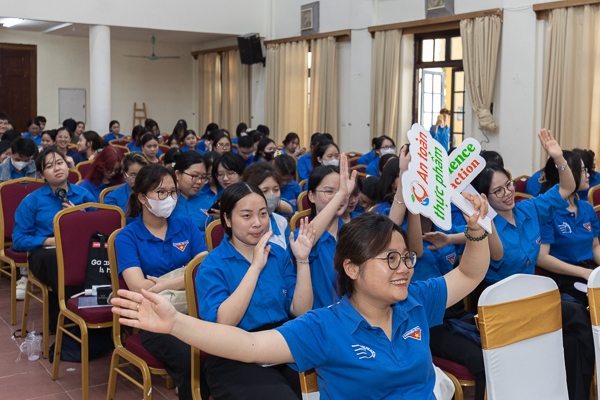 © FAO Viet Nam | VIET NAM To commemorate World Food Safety Day on 7 June, the National Institute of Animal Science (NIAS), with technical support from FAO, the International Livestock Research Institute (ILRI) and the World Health Organization (WHO), held a forum in Hanoi under the theme “Food Safety: Science in Action.” Over 200 students from Hanoi Law University and the Women’s Academy participated in interactive debates and discussions on the role of science-based policymaking in food safety. The event emphasized the need for evidence-based solutions and stronger multisectoral collaboration to address persistent food safety risks and enhance market access. Stakeholders underscored the importance of engaging youth, raising community awareness and applying science to build resilient, transparent and trusted food systems. Read the news here. | |
| INDONESIA From 26 May to 8 June, FAO and the Ministry of Agriculture, with support from the Australian Government, launched a nationwide awareness campaign to promote safe and healthy livestock ahead of Eid al-Adha, a religious holiday marked by the ritual sacrifice of livestock. The campaign promoted key animal health messages, including vaccination against foot-and-mouth disease (FMD) and lumpy skin disease (LSD), pre- and post-slaughter health checks, and early disease reporting. Public service announcements were broadcast through 20 community radio stations, reaching an estimated 22 480 listeners across 13 provinces, while complementary Instagram content reached over 11 000 users. | |
| CAMBODIA In Prey Chrok village, farmer Vong Samoun is improving pig health and boosting income through training under the Codex AMR Texts (ACT) project. With support from the Republic of Korea and technical assistance from FAO, the project—led by the General Directorate of Animal Health and Production (GDAHP)—helps farmers reduce antimicrobial use by applying Codex guidelines, biosecurity, and preventive care. Now trained as a community veterinary clinician, Samoun vaccinates regularly, disinfects pens, and treats animals responsibly, resulting in fewer illnesses, lower medicine costs, and healthier livestock. His story highlights Cambodia’s grassroots progress in tackling antimicrobial resistance and building resilient livestock systems. Read the full story here. Other success stories on this initiative are here and here. | |
SURVEILLANCE | ||
| NEPAL A hands-on QGIS training was held from 14 to 15 June for senior veterinary students at Nepal Polytechnic Institute, Chitwan. With funding support from the Pandemic Fund, FAO provided practical experience in data visualization to strengthen future veterinary professionals’ capacity to apply Geographic Information System (GIS) in livestock and animal health. Students learned to visualize GIS points, qualitative, and quantitative data. | |
| CAMBODIA From 3 to 4 June, FAO and the General Directorate of Animal Health and Production (GDAHP) conducted a field simulation exercise from 3 to 4 June in Battambang province, with support from the Pandemic Fund. The activity trained 56 veterinarians from five northwestern provinces to respond to H5N1 highly pathogenic avian influenza (HPAI) scenarios. The simulation is part of broader efforts to improve Cambodia’s multisectoral outbreak preparedness and response. | |
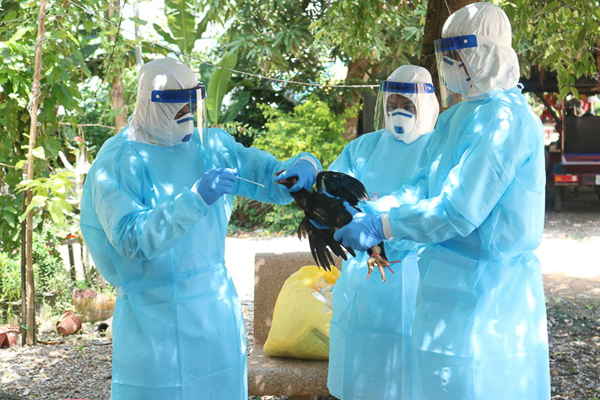 © FAO Cambodia © FAO Cambodia | CAMBODIA A series of FAO-led training and simulation exercises empowered Cambodian veterinarians and local authorities with practical skills in outbreak response. These activities focused on critical diseases such as avian influenza and African swine fever. Participants cited the importance of combining theoretical and hands-on learning to improve coordination and preparedness. The initiative highlighted the value of real-time learning and continuous capacity development at the sub-national level. | |
- Learn more about our work on antimicrobial resistance here.
- Learn more about our work on epidemiology here.
- Learn more about our work on laboratory here.
- Learn more about our work on One Health here.
- Learn more about our partnerships here.
- Learn more about our work on surveillance here.
Subscribe to our biweekly update here.

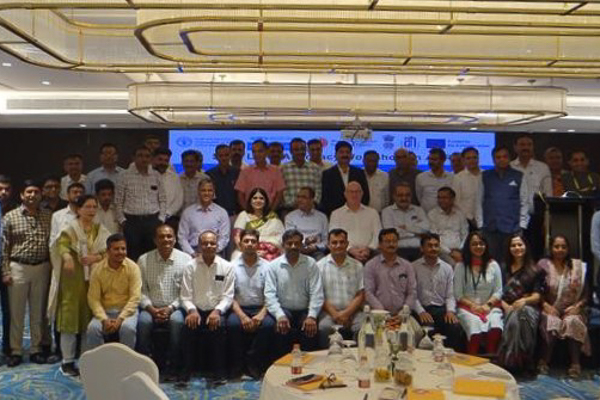 © FAO/Robin Paul
© FAO/Robin Paul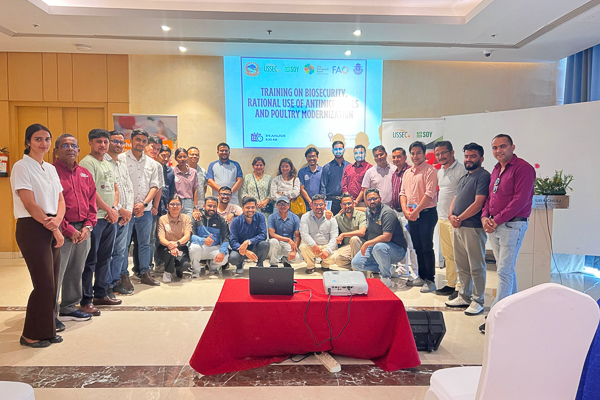 © FAO/Monalisha Khana
© FAO/Monalisha Khana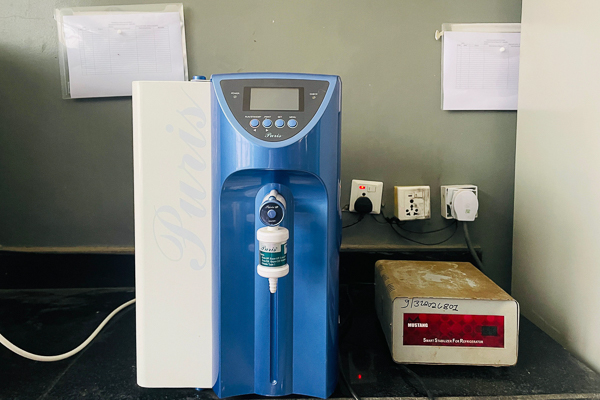 © FAO/Shrijana Khanal
© FAO/Shrijana Khanal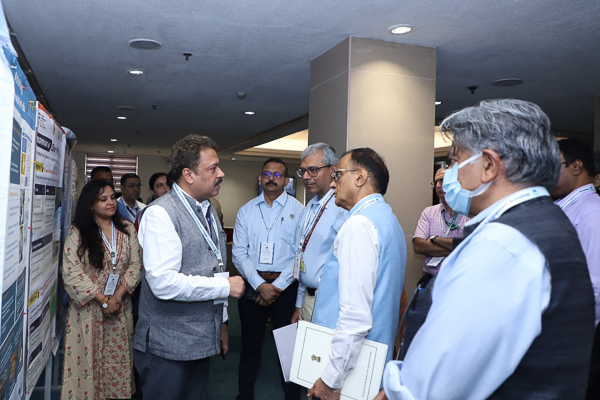 © FAO/Vikram Vashist
© FAO/Vikram Vashist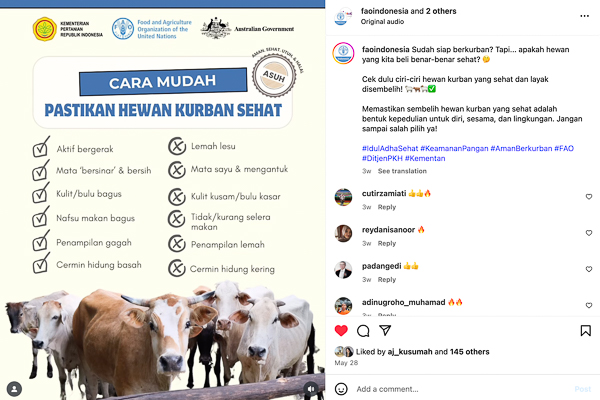 © FAO Indonesia
© FAO Indonesia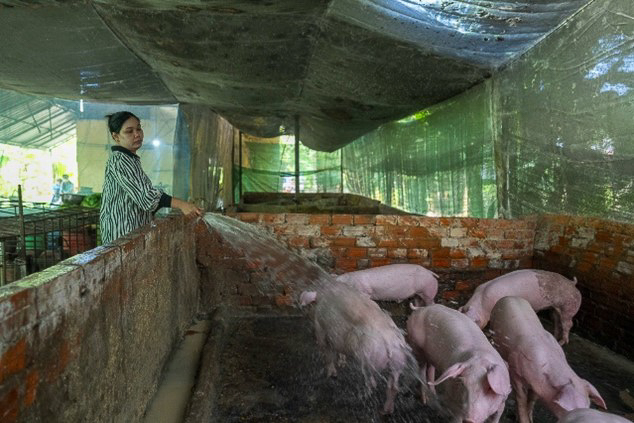 © FAO Cambodia
© FAO Cambodia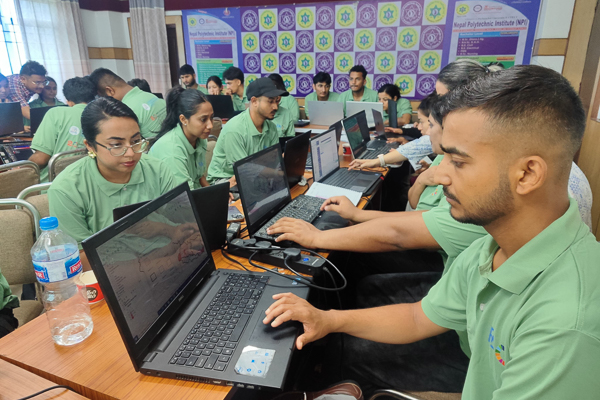 © FAO/Surendra Karki
© FAO/Surendra Karki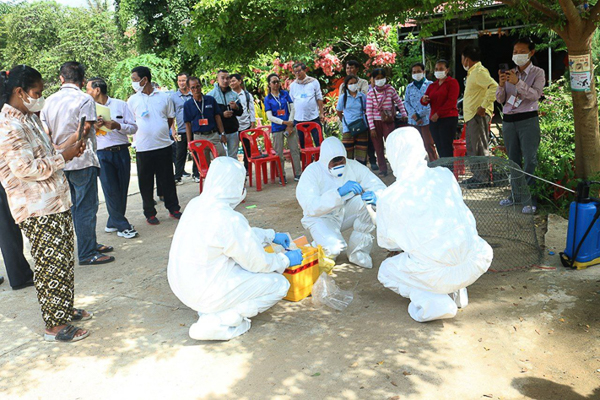 © FAO Cambodia
© FAO Cambodia